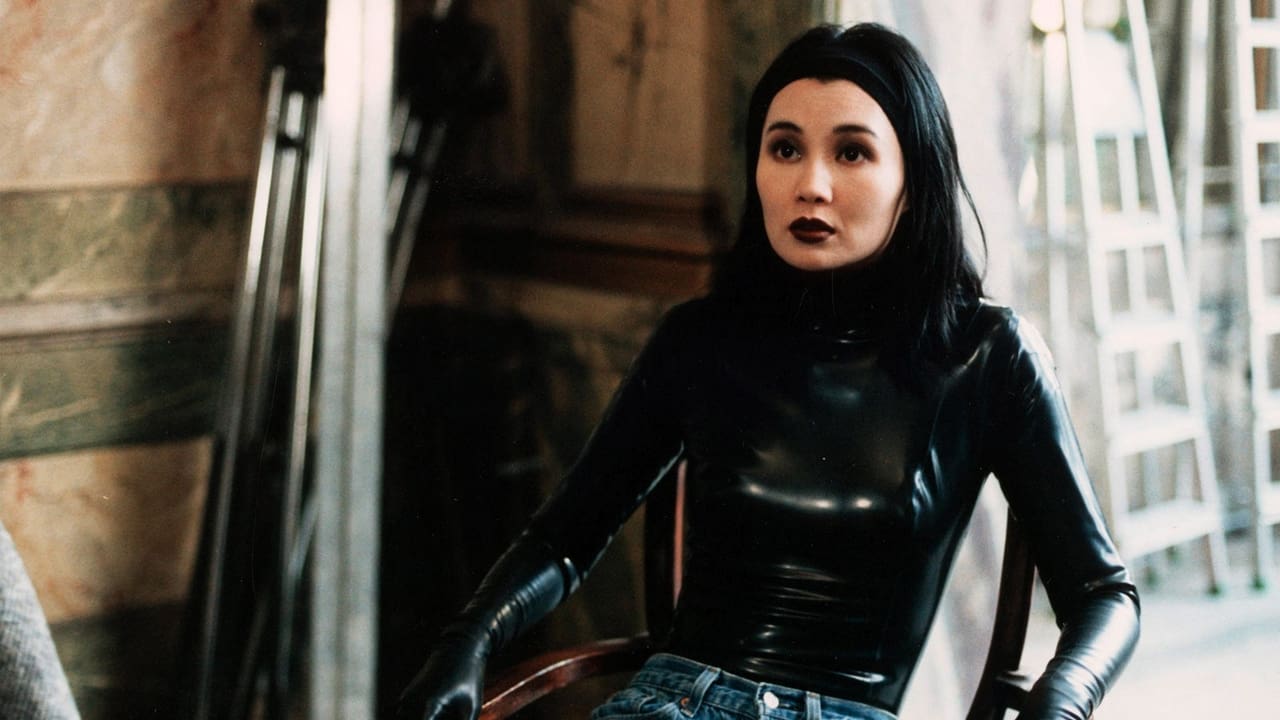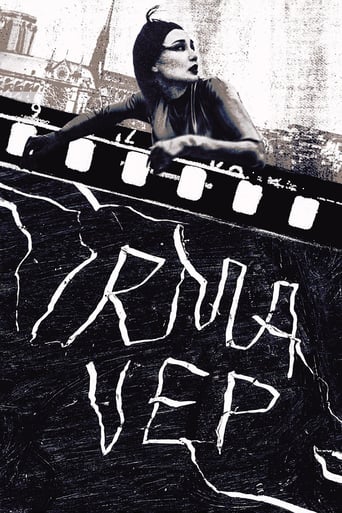

Such a frustrating disappointment
... View MoreSadly Over-hyped
... View MoreExcellent, Without a doubt!!
... View MoreThis is one of the best movies I’ve seen in a very long time. You have to go and see this on the big screen.
... View MoreAs mentioned above, this movie is about a movie being made and at times it's an example of how NOT to make a film. In particular, the director, played by Jean-Pierre Léaud, is teetering on the edge of a nervous breakdown and his decisions seem a bit strange to say the least. In particular, he paid to have an Asian actress, Maggie Cheung, fly all the way to Paris to star in his remake of the silent film IRMA VEP. The problem is, Ms. Cheung speaks excellent English (having lived much of her life there) and excellent Chinese--but NO FRENCH!! And the film is generally shown from her point of view--often feeling baffled and at a loss to cope with a new country, a new language and a new way of making films. This is a very interesting thing to behold (her viewpoint plus the film-making process) and somehow the movie really held my interest.Interestingly enough, this film is highly reminiscent of the Truffaut film, DAY FOR NIGHT, which also starred Jean-Pierre Léaud--though this time he played an actor not a director. Although I have loved him in many of his films (in particular, his "Antoine Doinelle" films for Truffaut), he was a bad choice for this film because his command of English isn't extraordinary. In fact, his accent was very thick and he really needed to be captioned--I really struggled to keep up whenever he was speaking. Unfortunately, NEW YORKER VIDEO, does NOT give you any captioning choices! In addition, the DVD has no extras--and this is a shame.Finally, the ending may satisfy some but I can guarantee many will feel a little flat at the film's conclusion. I liked what you are shown but felt there should have been just a little more to tie it together a little better.By the way, don't tell my wife I wrote this, but Maggie Cheung was really, really hot in this film.
... View MoreAn odd little piece of cinematic work by Olivier Assayas on a brief episode (fictional) about a Hong Kong actress brought to France by an eccentric director to play the title role in his revival of a silent movie, Irma Vep makes reference to, among other things, Michelle Pfeiffer's Catwoman in "Batman Returns" (1992), in the context of the body tight latex outfit designed for the heroine.As a movie about making movies, Irma Vep has considerably less to offer than Truffaut's "Day for Night" (1973). However, Maggie Cheung, 8 years before winning best actress in Cannes with "Clean" (2004) and playing herself in this stylish satire, was well received by critics, one of whom described one of her scenes thus: "When Maggie hears that Zoé is attracted to her, she's both charmed and incredulous: a swath of emotions, from confusion to cautious delight, passes across her face with the subtlety and playfulness of ripples on a lake." With only a hint of a plot, Irma Vep looks more like a series or sketches, or even a documentary, sustained by nervous energy. While the satire on the current (1996) state of movie-making in France would mean considerably more to people familiar with the scene, the movie on the while is more style than substance to the general audience.
... View MoreModern French cinema is far removed from the time when Louis Feuillade made his silent serial "Les Vampires". In 1915, the war had stifled the French film industry, as elsewhere, and thus the international dominance of Hollywood since. "Irma Vep", a film about filmmaking with all the self-reflexive jesting, owes more to the New Wave of several decades later.In it, a director plans to remake the nearly seven-hour long silent serial "Les Vampires", and he plans to remake it as a silent film, to boot. Casting a Hong Kong action star in the lead was the most rational decision he made. Here in lies the absurd humor of "Irma Vep". It's a clever idea, although a recycled one. I especially like the use of a silent serial, as I've seen many silent films (although I don't care for "Les Vampires" or serials in general). Anyhow, there are some good pokes at the modern French film industry; quibbles over the uncomfortable coexistence between commercial, popular movies (which would include "Les Vampires") and the artsy, government-funded ones (which would probably include "Irma Vep"); and French filmmaker stereotypes are exploited.The comicality is hit or miss, but that's not what I consider the film's major problem. I think the subplots (the lesbianism, personal affairs and such) detract from it. "Irma Vep" lacks focus, just as with the film within the film. The various story-lines and the film's style stray far from the path, but the problem is there doesn't seem to have been much of a path to begin with and, in the end, we get images from a completely unfocused mind.
... View MoreWe are introduced to `Irma Vep'(1996) as Maggie Cheung, playing herself, arrives on the frantic set of the film within a film remake of Louis Feuillade's `Les Vampires'. Maggie struggles to overcome a severe language barrier as she's introduced to the crew. Olivier Assayas exhibits beautiful camera work and an enticing introspective view into film making while commenting on contemporary French cinema. The director of the film within the film, René Vidal, recruits Maggie Cheung as the leading lady because he feels no French woman could do justice to the remake of the highly regarded silent film `Les Vampires'. This leads to a culture clash as a Hong Kong star is asked to portray one of the more dominant French female roles of the past. It quickly becomes apparent that René is obsessed with Maggie as they view some of her previous films together. René goes on and on about her beauty and grace in one of her Hong Kong fighter flicks and ignores Maggie when she tries to explain that it wasn't even her in the scenes he's praising. Of course Maggie must be properly outfitted for her role as the new vampiress. This is where she encounters the costume designer Zoé, Nathalie Richard. Like René, Zoé quickly becomes taken in by Maggie and develops a crush on her as well. At the fitting we see Maggie's role of the female present for the males pleasure. Though Maggie makes it clear she is terribly uncomfortable in the latex suit Zoé, René's ambassador, insists that it was exactly what René wanted, which of course all that matters. Maggie is the ultimate victim of the male eye as she is lonely, isolated in a foreign city and therefore forced to fulfill all the wishes of the male director. While throughout most of `Irma Vep' Maggie is objectified by stereotypes of the female as quiet, attractive and most importantly, obedient there is one scene where Maggie is allowed to break free from this role. In the only sequence Maggie is alone we enter the hotel room via fast paced camera movement, accompanied by loud equally quick moving music. Maggie fitted in her costume sneaks around the hotel stealing jewelry from an unsuspecting hotel guest. This scene is a powerful addition to the film as it allows the female to be the dominant party calling the shots independently of the male gaze.After this scene in which we're exposed to an alternate side of Maggie, René suffers a nervous break down and the fate of the film, as well as its leading lady's job is uncertain. It seems ironic how after this scene the course of the film within the film grows doubtful. Assayas has created a brilliant film that exposes the inner workings and troubles of the hidden cinematic apparatus and even allows for the development of a break through leading lady. Unfortunately Olivier Assayas doesn't allow for the complete breaking of stereotypes that females fall victim to and maintains the past tradition of keeping even the heroine subject to male dominancy in the cinematic gaze.
... View More